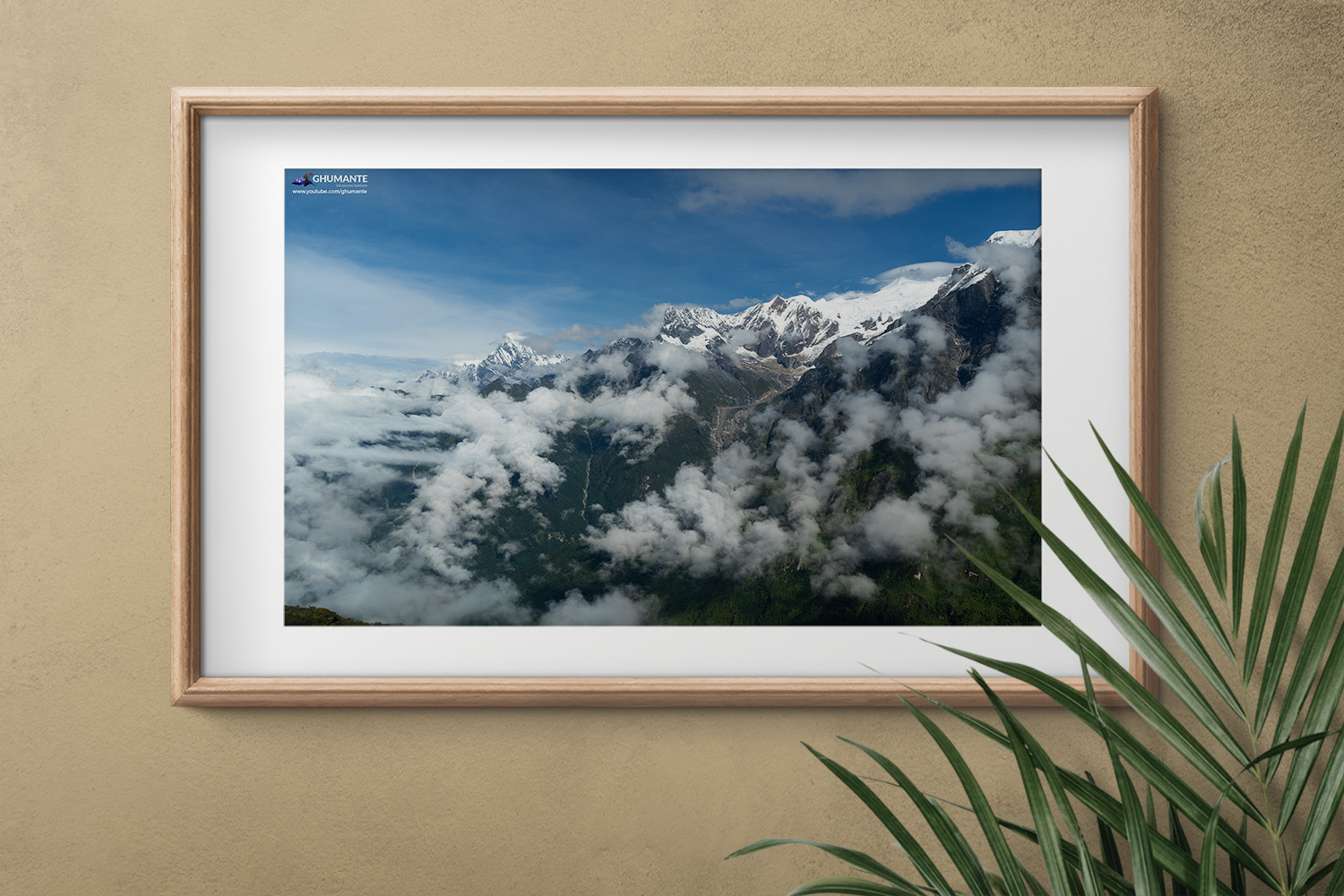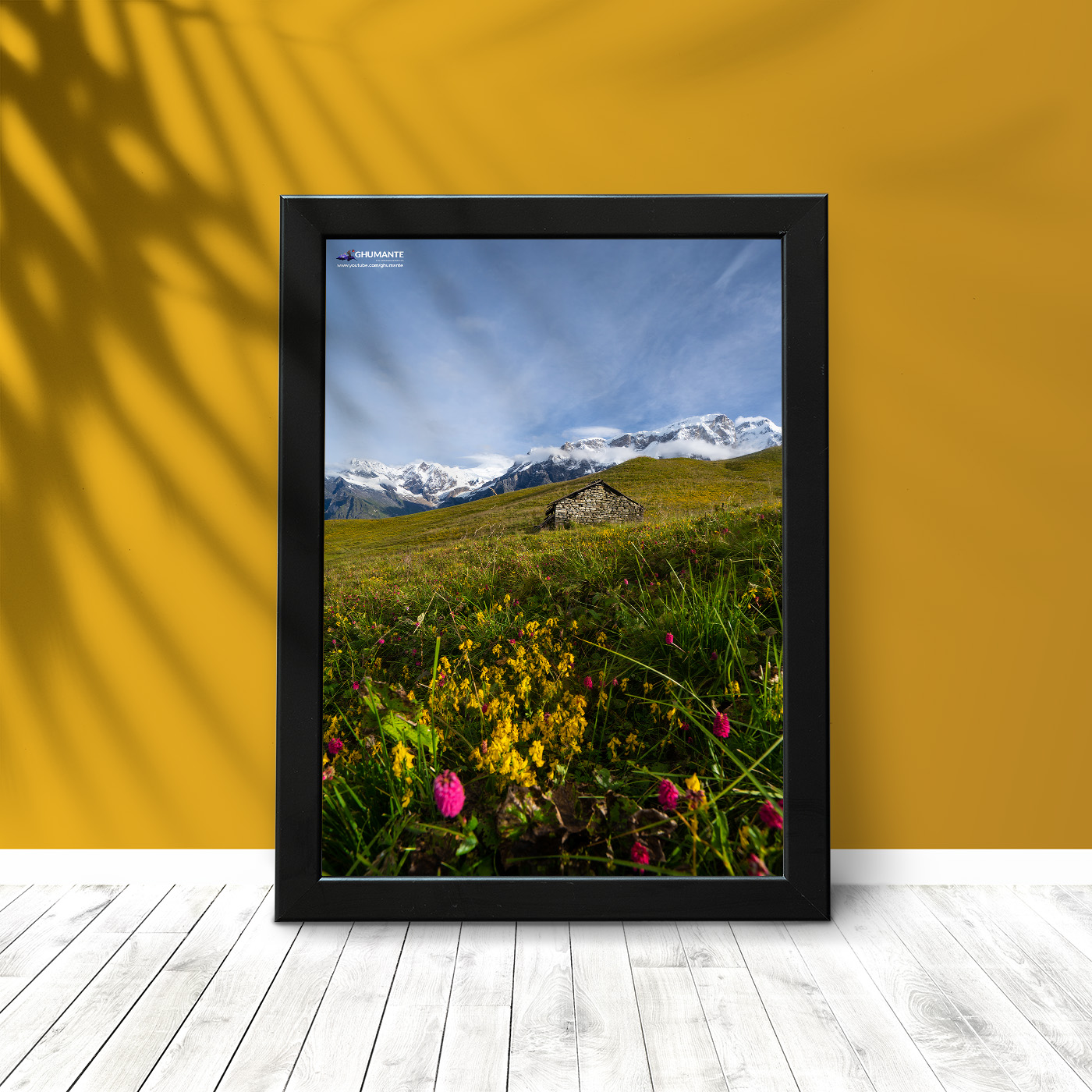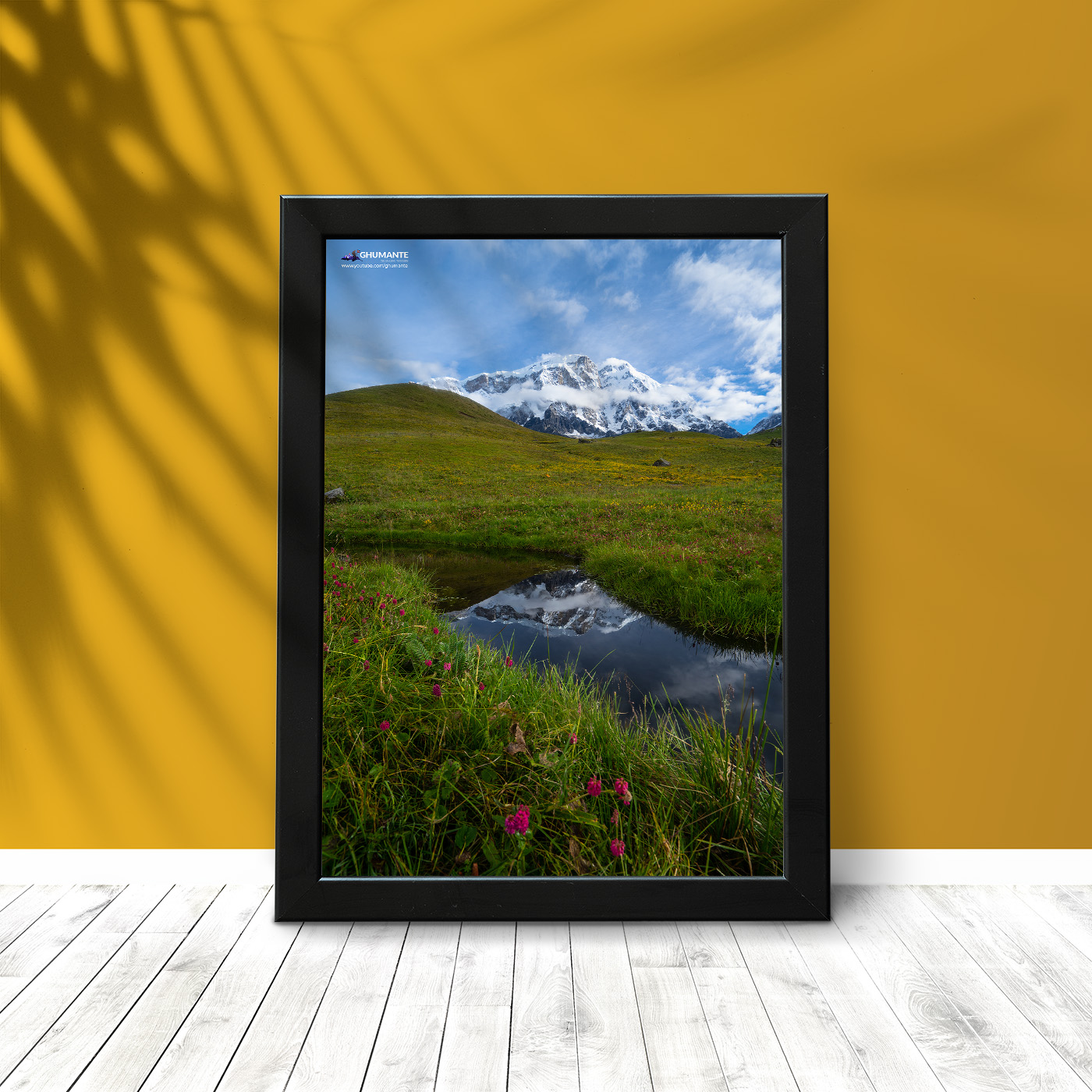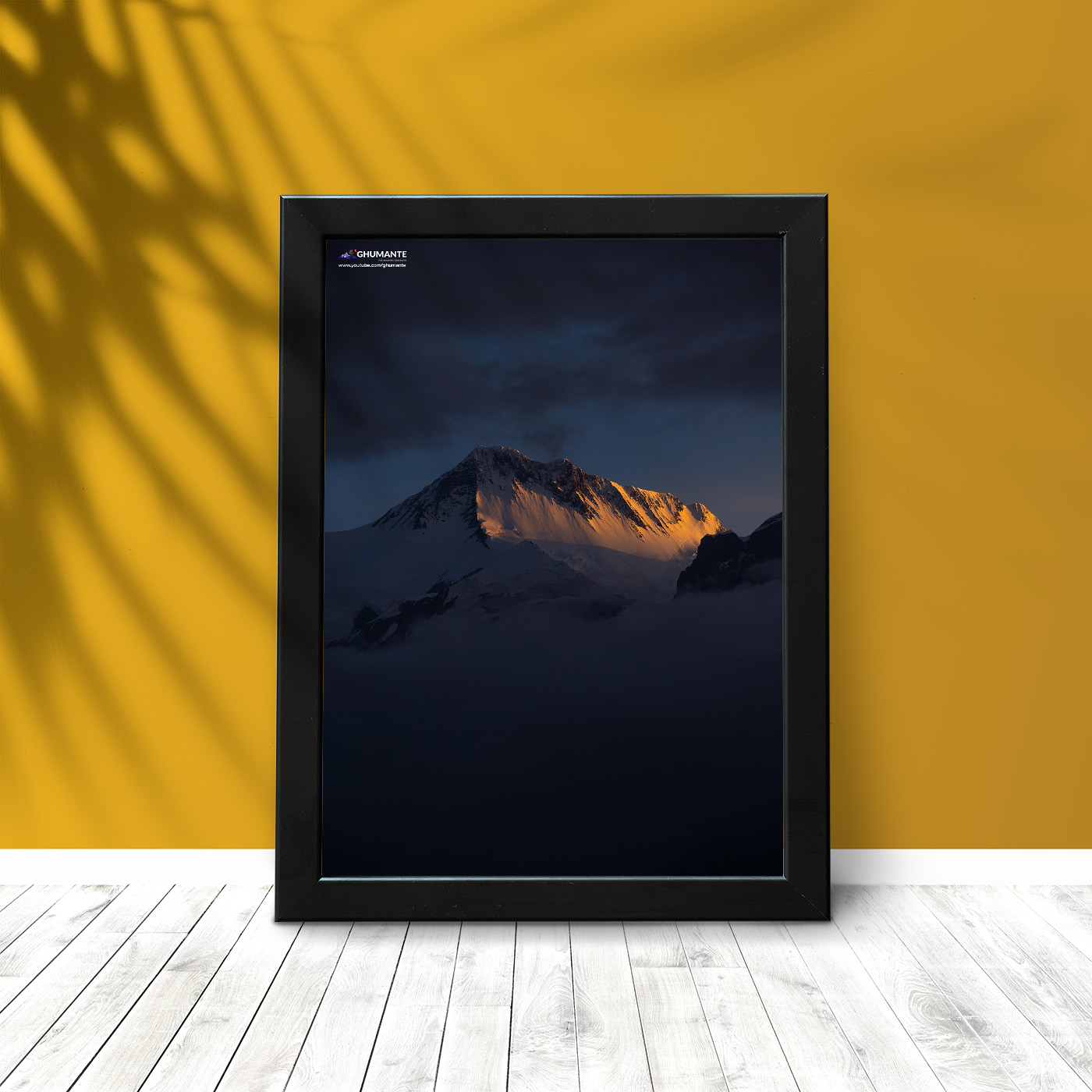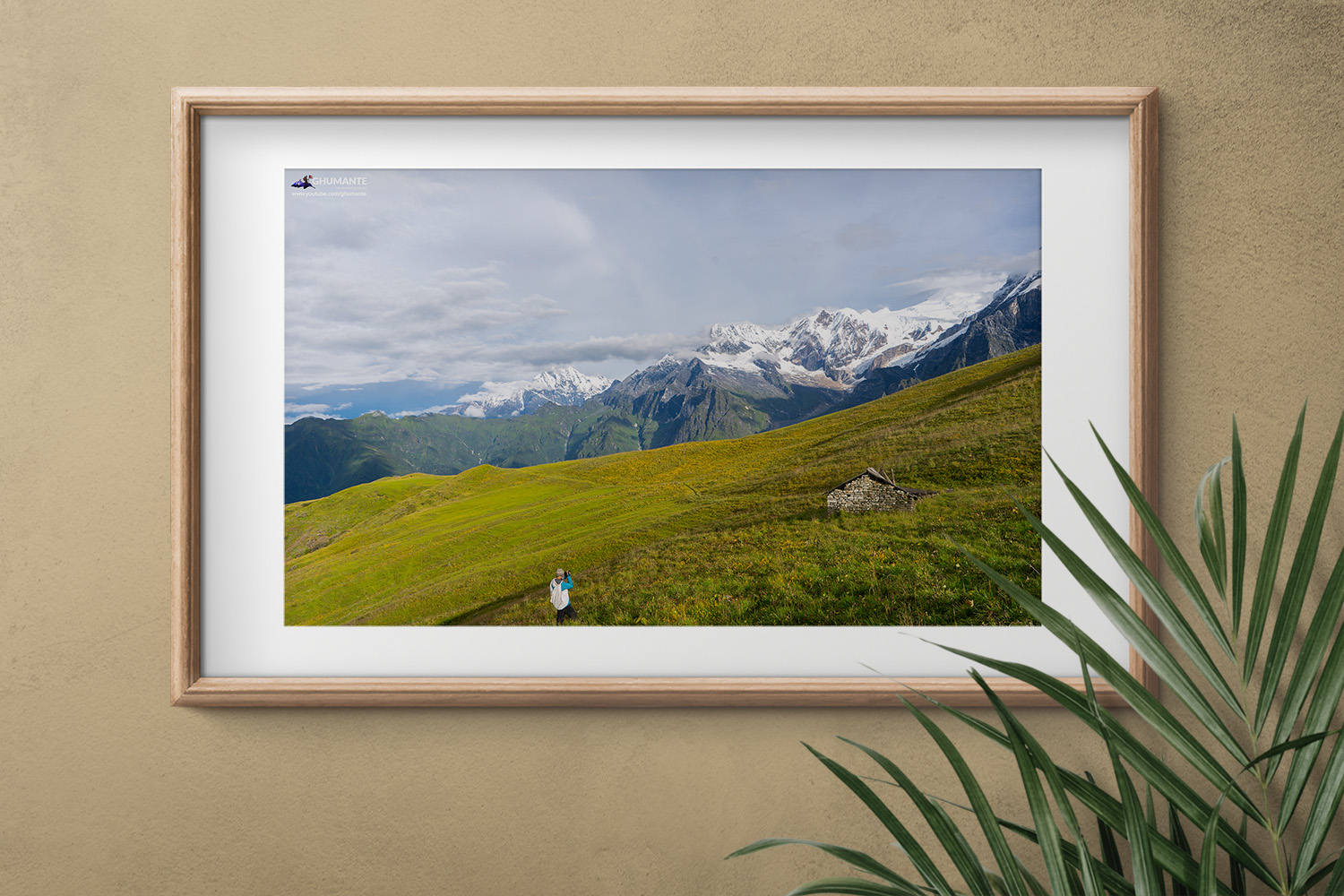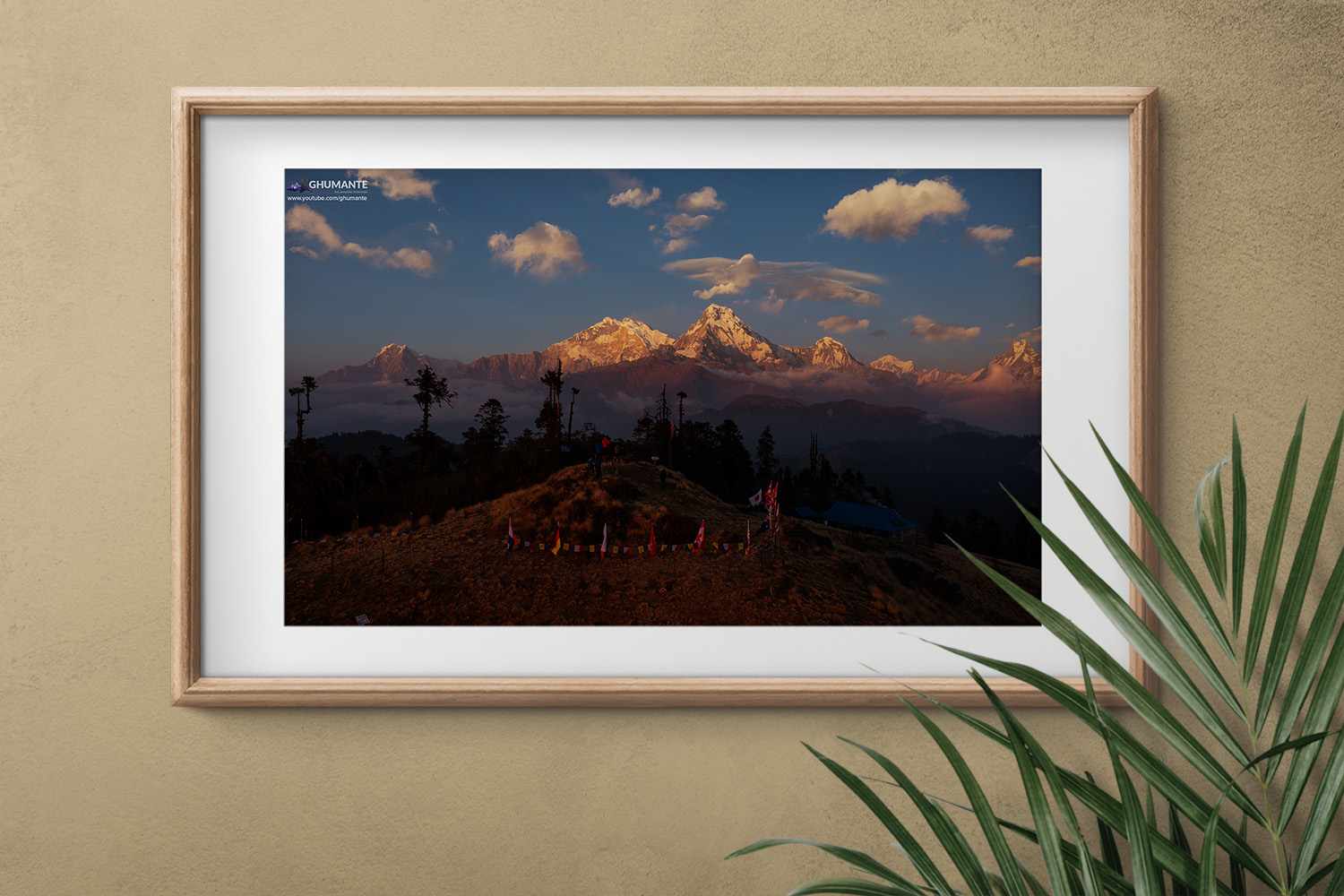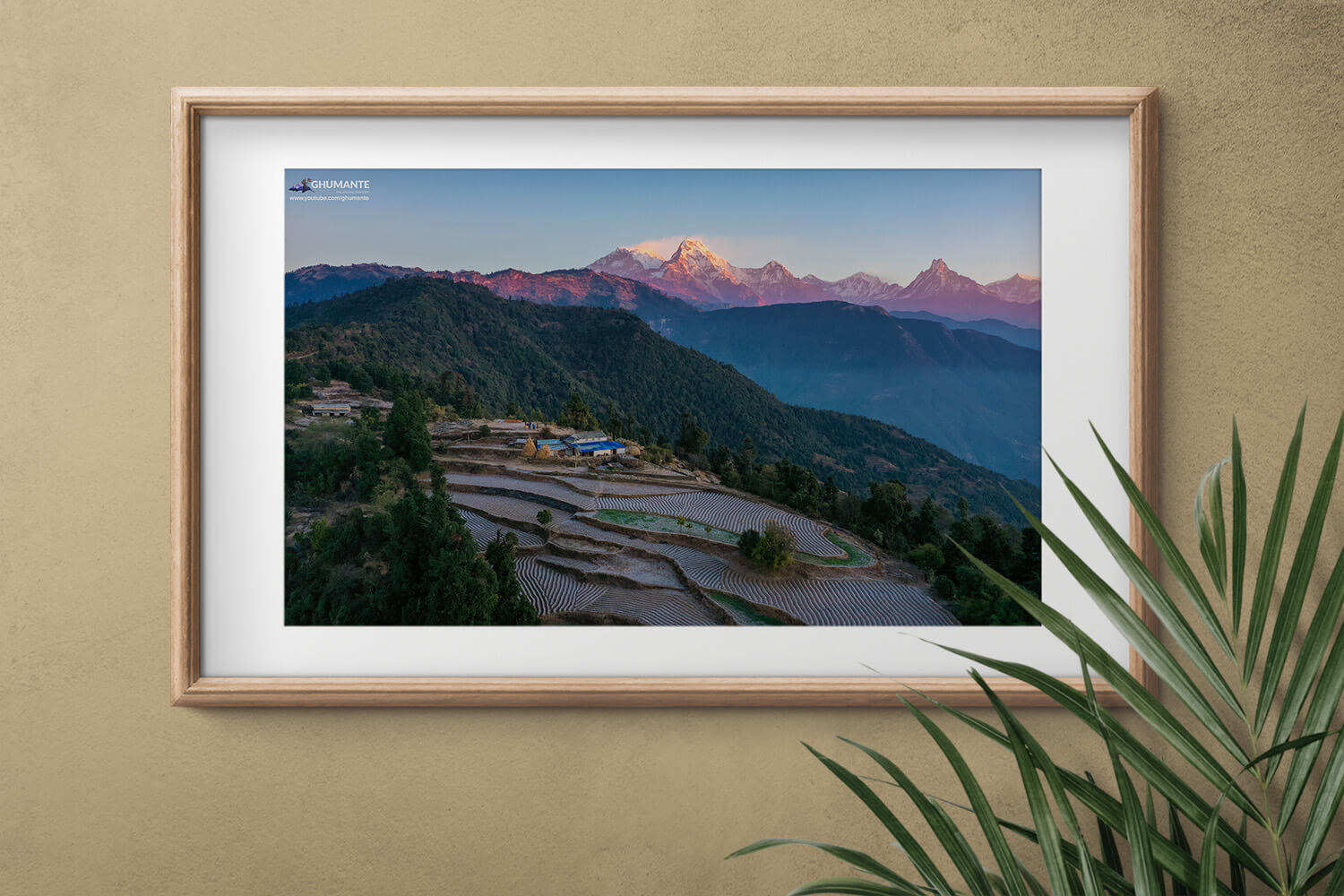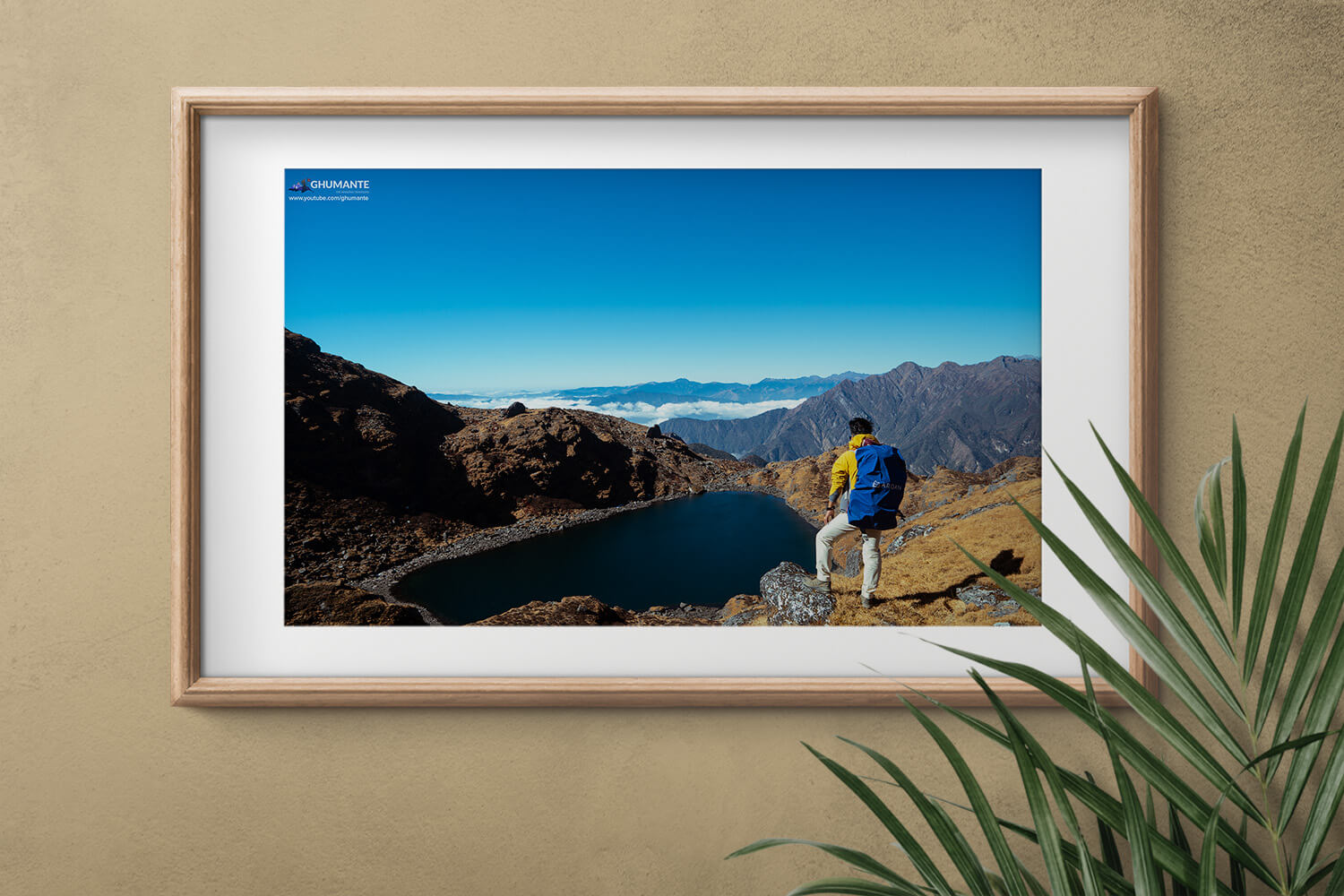
Five Travel Zombies’ escapade,a trip to Khaptad National Park!
I read somewhere that many travelers relate to the experience of travel closely to the throw of dice because every time we try to make travel predictable, it still finds a way to give it to us raw and random experiences with those lightning “spectacular now!!” moments which keep on treating every longing heart to take one more step further unto the unknown. And what is “unknown” besides “a walk into the uncharted” and what is “travel” other than “a walk away from your comfort”. On January of 2015, five travel zombies went on an escapade to one of the farthest region of Nepal. About 3 days away from Kathmandu, covering 225 sq.km of Bajhang, Bajura, Achham and Doti, resting at the altitude of 1000-3300m, far away from terms like “Modernity” and “21st century”, Khaptad National Park enjoys itself as it did a thousand years ago waiting to share everything that it holds.

We left from New Bus Park at around 4 in the evening and were shuttled through the Mahendra highway covering a total distance of more than 700 km. In the morning, at around 9, we were picked up by our dear friend and placed in the comfort of his house in the plains of Kanchanpur,Dhangadhi. The day went by as we took into the jungles, shared jokes with local people and watched children’s walk to their school. In the evening we bought food that we anticipated we need for our trek such as chiura (flattened rice), bhujia (crispy snack), achar (pickle), a cartoon of waiwai (noodles), biscuits and chocolate wafers (a lot) and toilet paper (never forget or you’ll have to find broad leaves and some tend to be itchy). Later in the night, we held a discussion of the routes we were to follow which was set as Dhangadhi (Atariya bus stop) to Siligudhi to a place called Jhigrana and the rest were unknown to us until then. This was trailed by a special dinner that the family treated to us of chicken, curry rice and lentil and each person had to gulp a large sized bowl of melted ghee (clarified butter – giving us a rumble in the belly jungle). After some series of photography session we woke up the next morning, cleaned up the mess we had created and headed out to book a seat for us to Siligudhi.

The old fashioned saying of “nothing is ever in time” just happened to be exhibited here too. We had to wait in a 3 hours transit like it was a turn-by-turn flight to the edge of the world and passing time was getting loathsome in the heat of the sun. Everyone was scattered in their own world in which I managed to get a Mohawk haircut because I was basically not seeing my parents for the coming 8 days. Finally the static shadow of rest was lifted as the wheels rolled us past the curves and we could see the city way down below in the vast land. The bus stopped at Doti and we had 4 plates of roti (flat bread) shivering in the winter cold and admiring the stars above. At around 2 after mid-night, I was dragged out from my slumber and saw that the conductor was holding my backpack and my friends were collecting it. The bus left us in the inky silent night with a little hint of a bed or even a floor. Half of us started knocking on locked hotel doors that treated us like ghosts and half of us still were coming out from the haze of sleep bewildered on the side of the road. A little way down the road, a look-out army suggested us to put out our tent in the temple which had good ground but we had to do a steep climb when everyone was ready to sleep then and there. The wisest among us said that this is travel and you should expect exactly nothing but accept everything on the road. So, all five of us hiked up, put up the tent and slept like boars, rigid, once we had found the most comfortable posture in the most uncomfortable space. Nothing is more precious to a man than his sleep at around 3 in the morning, I assure you that.

Next morning we were greeted by the chants coming out of dark-yellow teeth’s of a Baba ji (Hindu sage) and a herd of curious locals who were pretty much surprised to find us there in the morning as we were ourselves. They filled in the detail that we didn’t know at the time. The name of the temple was Shaileshwori dedicated to Lord Shiva (The god of Kirat people), from this point on we would start the walking part of our trek to reach a place called Jigrana, the babaji was a yogi in the morning, served as a lawyer in the day and turned into a drunk by the night time and also the temple ground that the army was talking about (the night before) to pitch our tent was on the other side and this was a restricted zone.

So, we packed our house as fogs lifted off from the ground, did a quick jog around the village up and down the stairs, gathered our backpack before the sun got strong and started up-hill with a mark in our paper map. Trekking is something that gets bearable as days go by and the first day is always the hardest one. Cramps, back-pain all hit in that body that’s has been sitting like a pile of dough but times get better.
Half way down the road we got the first glimpse of Api and Saipal ranges as herds of mules passed behind us carrying loads of sacks. After this we stopped debating which path we should take on the cross-roads and followed the mule-master.

We also gifted chocolate wafer to children’s we met who seemed to be so much happy to just hold them. One strange thing is that they dug a hole in the cliff and stored all their wafers for I don’t know when. After seeing 8 hours of beautiful landscapes, inquisitive people and un-polluted villages, the most far-sighted among us reminded us of the dying light right behind us. Footing murky steps carefully, we placed out tent behind a shacked house where everything was arranged to live but not an air of life flowed.

Jhigrana doesn’t have much to offer to you except for stoned roof houses and one lodge without enough space for 5 people. In here we met the 6th member of our group who goes by the name of Fred and hailed from Cape Town, South Africa. This point should be remembered as one of the last points of active communication from the world you are getting leaving behind every day. Now, it’s going to be talking to the trees, singing to the rivers, dancing to the fire, humbling to nature and getting more in touch with only the most ancient condition essential to run life and nothing more.

By the fire-side warming up a cup of coffee I summed up to be the third person awake in the morning. I noticed one of us had reached on top of a small hill and the other one coming out from behind a bush rubbing two hands together after a good sit-down. There is so much to be said of the silence of those hills in the morning that we just sat and listened but the hills keep their silence in the morning for the night had just passed and everywhere someone could be heard moving. On the other side, raw out of bed, the sun light had already fallen on Fred who made it a parliament of four as we begun passing on the day’s constitution. We got the permits required for Fred and the army people told us to reach Bichpani by the end of the day.

Looking back at the 7 hours now, it definitely was one of the hardest climb I walked with 15 kg of weight dragging down until my friend agreed to give me a break. These roads are not used very much in the winter season. Not many people pass you by and even if they do, it’s a going to be a quick chat for the long miles that are still to be covered. Half-way up, we were greeted by snow. And by the time we reached I still had the highest number of fall for the day.

Bichpani was empty when we arrived and ended up empty when we left. Winter couldn’t hold any guests too long here. The water on the tank was thick solid ice but we found another source a short hike up. Then we collected a lot of dry timber for the grand night ahead which went on well past mid-night. As night fell, all the food came in handy. Rums flowed like words. Snows were melted to boil tea and coffee. Oil rubbing relaxed a lot of muscles and the night stood still for one of us roamed the jungle alone just to keep an account of what’s it’s like in the woods!!

I followed a long trail of foot-steps of an animal (a wild dog most probably) deep into the woods in the morning as nobody was yet awake. Failed at finding nothing at the end, I headed back to find everyone packed and ready to move on. After a quick power snack we headed for our rest camp at Khaptad Army camp. Both sides of the trail were covered by forests and waters flowed high up from chasms in stones. Abandoned huts by abandoned people looked peculiar but nothing went in or out from it anytime soon. The view of endless light-blue hued hills was far enough to be said we were in the Himalayas. Snows kept it hard to tread faster but then treading faster was not a diet I could handle at the moment. Rolling pasture hills of Khaptad were white-washed with cotton snow with deep blue sky and green forests making it a landscape view to fall for.

We saw foot-steps three times our size which my friend claimed to be of “Big-foot” but turned out to be just army boots! First of the two huge stops we made was to heed the call of tummy and for a game of snow sport. And nobody, we met absolutely nobody on this day except the lodge holders at dusk. Every day the army people end and start the day with a shout and everyone should feel how it echoes through the land when they do it together.

The only lodge at the site had a good room heating system, a nice cook boy and a head-commander and in his hand had the T.V. remote. Yes, finally something from the modern world! We steamed our socks and barbecued our shoes so that it would be normal to put on next morning, kept bodies warm with boiled water and whatever food was left in stock while watching footballs, tried some star photography which did not fit very well with the lodge owner (long story) and finally went to bed bleeding with painful joy (if you know what I mean).
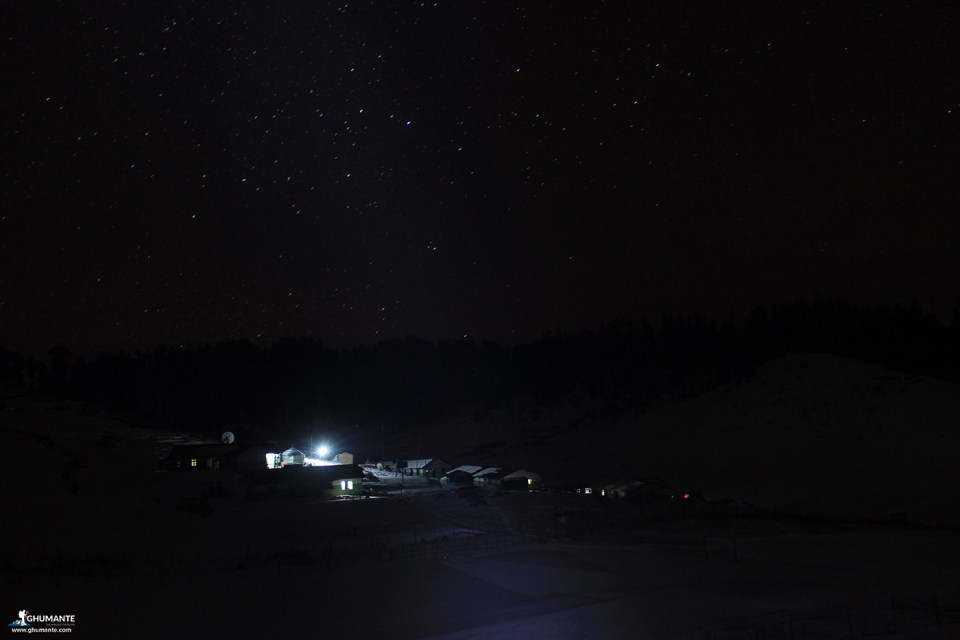
Every time I looked at the forests it felt like something is always there looking out at me and I am looking out at it. But nothing actually came out of it and I went back with my stand and camera. Fred headed back through the way we came yesterday and we said our goodbyes. You could buy some foods from army camp which we did and followed a stone laid path straight down to Daru goan. One of friend was collecting stones and plants based upon his interest when he found bones. Different sized bones buried in snow of skull, eye sockets, joints of which each of us kept at least one.

Then for the next 1 hour we were lost and were climbing, skidding and sliding passing through slopes. We followed a frozen river until we came to an opening of a waterfall. But everything was frozen. Completely frozen and covered with snow. Now, the bravest among us said that we should slide down from this gorge down to the valley to which we were pretty much skeptic. Then he did a demo of how a body would slide in the snow by throwing his bag. This ruined to calmness of each of our heart because now all of us had got to go. Everything turned like the rolling of a dice and all of us threw our bags from the cliff and skidded down 50m. Then it was a walk of a lifetime.

The most witted among us said if someone bothers about this experience then tell them it is like asking someone to pronounce something they had never heard. Our only active instinct was survival and every step an invitation to try not to break any bones. Nothing gets as extreme as this. After more than three hours of coming down the gorge from where a huge water fall flows in monsoon, pale yellow fields of dry grasses made us vomit all the insecurities out. We arrived at Daru gaon and settled after 8 hours of walk. Daru gaon does not have its own blend of raksi (alcohol – strange) but does have vodka (Minska) and rums (Khukuri) so make up with what you have for the night.

Early morning we set out to see the village. The village is famous for Okhar (Walnut), pani ghatta (water mills) and gambling (hardcore – my friend lost all his money). We had heavy Phapar roti (Buckwheat flat-bread) which is also a item you have to order if you ever go there. To get any kinds of transport, we had to relocate ourselves about 4 hours to a place called Tamel. We left Daru gaon pretty late in the day at around 1 and we reached Tamel at around 8 in the night. With the first light, the sharp knock on our door signaled that the only bus today is leaving and we should board it right now. With this we end out travel and head back to Dhangadhi and the next day to Kathmandu. Which would be pretty fun to write but then again everyone knows what it’s like on these roads.

An outline of itinerary is listed below:
Day 1: Kathmandu – Dhangadhi (ahh, 16 -18 hours – the bus left kathmandu at 4 in evening and dropped us at around 9 next morning)
Day 2: Dhangadhi (Atariya bus stop) – Siligudi
Day 3: Siligudi (starting point of walking) – Jhigrana (only one lodge in Jhigrana in winter time – takes 6-8 hours)
Day 4: Jhigrana – Bichpani (no lodges or anything here but there are open houses left by settler who have moved to lower altitudes in winter – you can stay in and carrying a tent is going to be awesome – takes 6 – 8 hours)
Day 5: Bichpani – Khaptad Army camp (there is a lodge here and Khaptad Baba ko Kuti – takes 5-6 hours)
Day 6: Khaptad army camp – Daru gaon (finally back to a civilization – takes 5-6 hours)
Day 7: Daru gaon – Tamel (You have to walk 2-3 hours to a place called Tamel to catch a bus back to Dhangadhi only in the next day.
Day 8: Tamel to Dhangadhi (if the bus leaves in the morning then you will reach in the evening in Dhangadhi)
Attractions in Khaptad National Parks
- Open pasturelands
- Khaptad Daha (In the months of Aug-Sept., Pornima (fullmoon) festival is celebrated in this lake)
- Saipal Himal ranges
- Khaptad Baba Ashram
- Sahashra linga, Ganesh temple, Nagdhunga, Kedardhunga
Cost
It is safe to take around Rs.15000. This will be sufficient because we each had Rs. 8000 and we barely made it. But this is a off-season price. For on-season, Rs. 20000 plus is recommended so that money may not present any kind of trouble. You can get money transfers up to Siligudhi but again you need to check exactly which one is available.
[author] [author_image timthumb=’on’]http://kanchanrai.com.np/sauravghimire.jpg[/author_image] [author_info] Hey dudes and dudis,I am a traveler and a story teller. I always had that thing, you know, for recording the solitude of an field or the openness of sky or depth of a birds flight far away through the imagination of letters and alphabets. And these dance of birds cannot be so far away because I have learned so much more by re-reading these entries of momentous feelings and thoughts.I have to say that I have traveled broadly because I realized early that what is told or described can never amount to what would it be like to truly live the description and see it inspire you. And this is the thing man, you live for what makes you a better person and when you find that it’s just about feels natural to fight for it. So, I travel and talk and meet and adjust to just what i get by the minute, producing a better vision of this world for myself and also to bring something back to buzz all of you. That’s about it from me. [/author_info] [/author]
Comments






